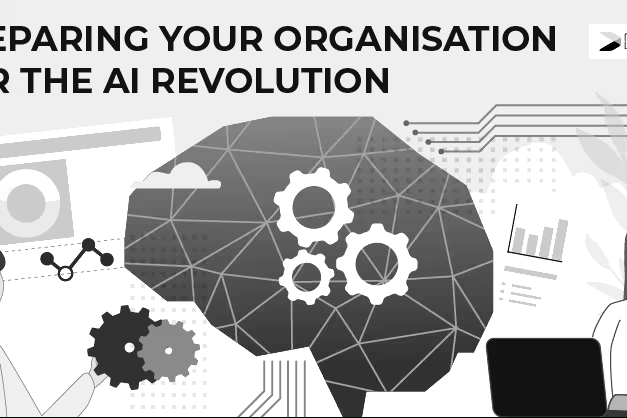Preparing for the AI Revolution
If you are keeping with news in the technology industry, you’ll have noticed a significant amount of coverage on the anticipated AI revolution. This new development could potentially displace skilled workers and revolutionise the industry.

The increased focus on AI can be attributed in part to the public release of ChatGPT 3.5 by OpenAI in late 2022. This AI language model’s ease of use, familiarity, and accessibility has contributed significantly to its rapid adoption and widespread popularity.
This article will not delve into a detailed explanation of what ChatGPT is or how it is expected to impact the technology landscape given there are already numerous content creators, namely, Bernard Marr, Ben Thompson, and South African expert Brett StClair, that have been diligently reporting on this topic and providing regular updates.
However, as ChatGPT continues to gain attention, organisations across various industries are now seriously considering this new wave of AI models and how they will impact their operations. Regardless of what the use cases of AI will be in the near future, the underlying IT and data governance strategies play a key role in ensuring both the accuracy and success of the models.
Having worked with mission-critical data for large organisations for more than two decades, Digiata is keenly aware of the immense value that such data can bring to the development of future AI models. As a result, we have amassed a wealth of transactional data on behalf of our clients, believing we can serve as a valuable input into the creation and optimisation of advanced AI models.
We’d like to share some key insights into how you can prepare your organisation’s data for the AI revolution. By taking the appropriate steps to properly prepare and optimise data, organisations can help ensure that their AI models operate efficiently, produce accurate results, and generate meaningful business value.
Ensuring Data Quality: The adage of “garbage in, garbage out” rings true as the quality of the input into the AI model will determine the quality of the output. The data that is used as input into an AI model needs to be accurate, complete, and consistent. Maintaining the data in this state can be a labour intensive task. Automating data quality checks, detecting data quality issues and correcting them will ensure the mitigation of data quality issues.
Cleanse and Normalise Data: To ensure the accuracy and completeness of data used to train AI models, it is essential to remove any inconsistencies, errors, or missing values. Implementing automated data cleansing processes (particularly when dealing with legacy systems that cannot be normalised upon input) can serve as a crucial filter between the AI model and the source system. When designing new business applications, one should ensure that data cleanliness and normalisation is part of the design process so that there are no unexpected issues down the line. Doing so ensures AI models are based on high-quality data leading to more accurate and reliable results.
Pick Relevant Data: It’s easy to get lost thinking more data leads to better solutions. This however is not always the case. Instead, it makes more sense to have a more targeted solution that identifies the business problem you are looking to solve as a first step in the AI project plan. Once the business problem(s) have been identified, data that needs to be used as input when training an AI model should be identified. This ensures that only the relevant data that provides the necessary insights to address the specific business problem will be included. By identifying relevant data, organisations can also be sure that the AI model is aligned with the business objectives and priorities. This leads to better decision-making and ultimately drives business growth and success. Having access and management of the data that your business applications are holding will allow you to leverage the data in a much more effective manner.
Data management, quality, and security is a vital aspect of building trust in data used for AI models. At Digiata, we specialise in delivering smart solutions that help organisations to achieve this goal. By implementing these best practices, our clients’ application data becomes ready for input into AI models. We recognise the importance of ensuring that the data used to train AI models is of the highest quality and integrity. We have built our solutions around this core principle and have honed our expertise over the years to deliver best-in-class solutions. These solutions mean organisations can rest assured that their data is ready to be utilised for AI models, leading to more accurate and reliable predictions and recommendations.
If you are interested in building smart business applications for the future, or looking to automate data quality and cleansing of your existing datasets, Digiata’s innovative toolset can certainly help.

